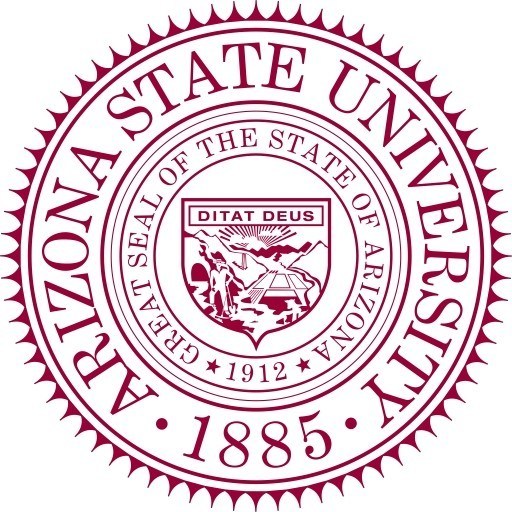Photos of university / #arizonastateuniversity
The Gender Studies doctoral program is part of the nation's first School of Social Transformation. The diverse community of scholars takes an innovative approach to the study of social justice by uniting multiple academic disciplines to strategically create social change that is democratic, inclusive and just.
The inclusive gender studies doctoral program empowers tomorrow's community leaders and shapers by immersing them in:
- ASU's On-campus Digital Humanities research lab
- creative and critical knowledge production
- deep fluency in feminist theory and practical applications
- publicly-engaged academic research
- socially embedded community partnerships
The connections between social locations, community and lived experience is the foundation of the research, teaching and community engagement. Faculty and students explore these intersections from a holistic and historical perspective that goes beyond the classroom.
84 credit hours, a written comprehensive exam, an oral comprehensive exam, a prospectus and a dissertation
The gender studies program requires:
84 credit hours for students admitted with only a bachelor's degree
a dissertation
both a written and oral comprehensive examination
The gender studies doctoral program is designed to provide students with the transdisciplinary training in theory and methods needed to conduct original research and scholarship about gender. At the core of the program are four required courses:
- WST 601 Critical Concepts of Gender (3)
- WST 602 Mapping the Intersections of Gender (3)
- WST 603 Engendering Methodology (3)
- WST 701 Research Design and Proposal Development in Gender Studies (3)
Students also take two research methods courses relevant to their dissertation, plus additional courses among three areas of specialization: gender, justice and social change; health, science and technology; and visual and narrative culture.
Gender, justice and social change
Courses in this area explore the gender dimension of social structures, institutions and organizations; the processes of social change and community development; and the ways policies and laws can change gender relations. Faculty have expertise in:
- child welfare
- domestic violence
- gender and the biophysical environment
- globalization
- immigration
- labor and employment
- social policy
- sustainability
- transnational feminisms
- women's rights and gender equality in the developing world
Health, science and technology
Courses in this area explore the impact of gender on:
- health care
- health occupations
- science and technology
Faculty have expertise in:
- bioethics
- gender and technology
- health and sexuality
- HIV and AIDS prevention
- the participation of women in math and science in the developing world
- women's roles as healers and caregivers
Visual and narrative culture
Courses in this area explore historical and contemporary representations of gender in all genres, including:
- art
- literature
- popular culture
- scientific, medical, historical and legal discourse
- theater
The faculty focus especially on the intersections of gender representations with representations of race, sexuality and class, and the ways in which representations produce rather than simply mimic gender inequality and polarized identities.
- ASU Graduate Admission Services application.
- Non-refundable application fee as specified by ASU Graduate Admission Services.
- Official copies of transcripts from all college and universities where you have earned a bachelor's and/or master's degree.
- Official GRE scores. Testing scores cannot be more than five years old.
- Résumé or curriculum vitae.
- Statement of purpose.
- Writing sample (10-15 pages).
- Three letters of reference preferably from faculty or other researchers.
- Students whose native language is not English must meet ASU's English proficiency requirements.
Except for official transcripts, all of the application components above can be uploaded directly through the ASU Graduate Admission Services online application process. Transcripts need to be physically mailed to ASU Graduate Admission Services at the address below:
Arizona State University
Graduate Admission Services
PO Box 871003
Tempe, AZ 85287-1003
If sending by FedEx, DHL or UPS, use this address:
Graduate Admission Services
Arizona State University
1151 S. Forest Avenue, #SSV112
Tempe, AZ 85287-0112
Want to improve your English level for admission?
Prepare for the program requirements with English Online by the British Council.
- ✔️ Flexible study schedule
- ✔️ Experienced teachers
- ✔️ Certificate upon completion
📘 Recommended for students with an IELTS level of 6.0 or below.
Scholarships
Each year we aim to admit a number of doctoral students who can be fully funded with graduate fellowships and teaching and research assistantships (typically four or five). These awards cover your tuition, health insurance, and also carry a stipend.
As doctoral students near the final stages of their program, they apply for competitive dissertation completion fellowships from Arizona State University Graduate Education, which is semester long funding that allows students to focus on the dissertation.
If your ultimate goal is a professorial career, you will be encouraged to participate in ASU’s outstanding Preparing Future Faculty (PFF) program after your first year of doctoral study.
In support of offsite research and participation in professional conferences and meetings, ASU’s Graduate and Professional Student Association (GPSA) offers competitive research grants and travel funding.

